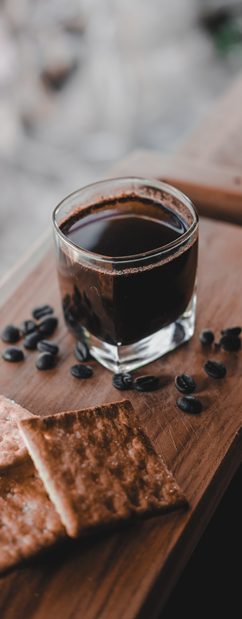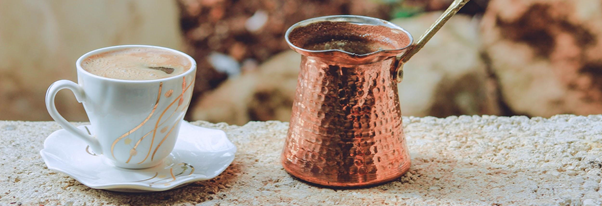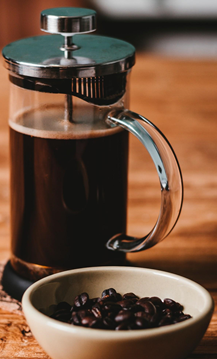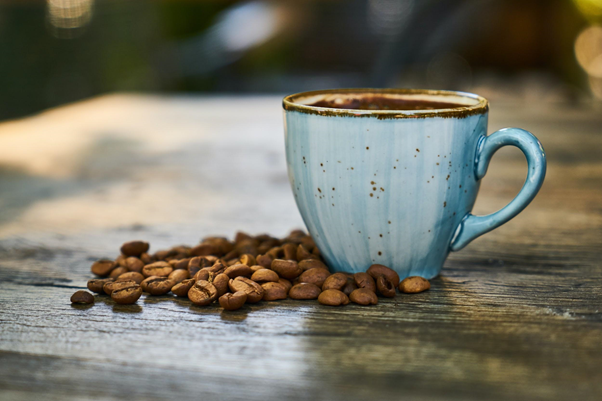There exists an outlier in the world of coffee; something that is so obscure a concept that many consider it a joke or tourist trap. Welcome to the world of Kopi Luwak; the coffee made from the excrement of an Asian cat-like creature.
How Kopi Luwak is Made
Kopi Luwak (or monkey coffee) is harvested from the excrement from an Asian Palm Civet; a cat-like mammal who is in the habit of eating coffee cherries and is unable to fully digest the coffee bean.
History

The history behind the world’s most expensive cup of coffee is not known precisely, but most speculation points to Dutch colonisation. The Dutch wouldn’t allow the farmers of Indonesia to take any coffee beans for themselves, so the farmers had to scrounge to get a good brew. The fecal matter of the Civet provided coffee beans that were cleaned and fair game without getting in trouble with their Dutch colonial rulers.
Farming Region and Bean
Kopi Luwak was originally farmed in Indonesia. With the popularity of the coffee came imitators from other parts of Asia. China, Vietnam, Cambodia, and the Philippines all now claim to be producers of Kopi Luwak. Authentic Kopi Lowak should be sourced from Indonesia.
Civet coffee is not necessarily defined as being of the Arabica or Robusta bean. Many producers of Kopi Luwak do market their product as being 100% Arabica. With farms dedicated to the production of Kopi Luwak coffee, there is no surprise that producers would try and make their civet coffee Arabica as well as Kopi Lowak.
Chemical Changes
There is research that shows the Civet’s digestive tract has enzymes that penetrate the porous surface of the coffee beans, and chemical reactions occur. These chemical reactions mean that the bitterness usually delivered by the coffee bean is made milder, allowing for a less roasted and more rounded taste to develop within the bean.
End Result
The end result, although debated by many coffee lovers, is a coffee bean that is not as bitter. The resulting cup of coffee is well-rounded, balanced, and without the slightest hint of bitterness. Many enjoyers of Kopi Luwak have given glorious reviews with their experiences.
Potential Ethical Dilemmas

Monkey poop coffee, as it is quite often accidentally called, is not without potential downsides. There is much debate over whether or not a cup of the most expensive coffee in the world is actually worth it.
Animal Treatment
In the early stages of civet coffee, the beans were naturally harvested from the cat-like creatures that were depositing them. As popularity grew with the bean, enterprising individuals started forming plantations in which civets would be caged and fed a strict Arabica diet with the goal of producing Kopi Luwak in commercial quantities. This has raised doubts among many preservationists that a cup of Kopi Luwak is not worth the treatment of the civet being kept from its natural habitat.
Overrated Expensive Tourist Trap
As is the case with many phenomena such as civet coffee, the core product is prone to misrepresentation and fraudsters. It could be that the Kopi Luwak cup of coffee is an elaborate tourist trap meant to take the hard-earned dollars from gullible adventure-seekers.
There are many reviews that claim that this cup of coffee just simply is not worth it. Apparently, the cup of Kopi Luwak is all hype without legitimacy. The internet is filled with claims from both sides of this argument; claiming it to be the best cup and only an above-average cup of coffee.
The only judge of that should be you, dear reader. One must think and ponder to themselves; what does coffee taste like after going through the digestive tract of some sort of monkey cat?
How to Find and Make Kopi Luwak
The most expensive cup of coffee in the world is prone to have imitators and the tourist traps mentioned above. When it comes to a cup of civet coffee, buyer beware.
Research, Research, Research
You should shop around. When it comes to coffee that has made its way through a civet’s digestive tract make sure that you do some reading on where the best place is to find this coffee. The internet is filled with people who have had both positive and negative experiences with Kopi Luwak. Take advantage of the experiences of others, and find what is the most legitimate source for your Kopi Luwak experience.
Wild Civet Coffee

Make sure that the cup of civet coffee that you are getting is actually from a wild civet. There is no use in sourcing coffee that is mere monkey poop coffee and for ethical reasons, you may want to avoid the beans that are made from force-fed civets. Ensure that the coffee that you are getting is the real wild kopi luwak, legitimately sourced just as the Indonesians of Dutch Colonisation also found their coffee.
Brew
Find the ideal bean relatively recently passed by a civet, and brew that coffee. This is also not a bean to be put through your espresso machine and mixed with some steamed milk. The ideal way to consume Kupi Lawak is either in a French press or Turkish style.
A good cup of Kupi Lawak shouldn’t need any sugar or milk. It is usually consumed black. As a black coffee, it is very smooth and full of flavour. It should be an experience that you savour until the next time you have a cup of Kopi Luwak.
Kopi Luwak and the Sense of Adventure

Kopi Lowak is not the typical civic coffee that you find on any street corner in a major city. As with many food and beverage experiences throughout the Asian continent, Kopi Luwak comes with a sense of mystery and a hint of absurdity. Kopi Luwak by definition separates the risk-taker from the creature of habit.
Civet coffee separates the adventurer from the homebody. The ‘monkey poop coffee’ is the difference between a new experience and familiarity. If you are asking yourself whether or not you should have Kopi Luwak, the answer is whether or not you wish to venture to the unknown or embrace what is familiar to you.
Just drink it.


